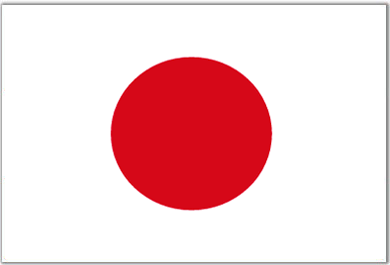The Oldest Man in Tokyo

In 1966, Japan instituted a state holiday called “Respect for the Aged Day,” a day to honor the older members of the Japanese population. On that day, community officials and the media alike make a point to honor those people who have lived lives much longer than typical. In 2010, for example, local officials in Tokyo wanted to honor Sogen Kato, a man who was celebrating his 111th birthday that year, and believed to be the oldest person in the country’s capital city. They believed that he was living with his relatives — most notably his daughter and granddaughter — and paid a visit to him just a few days after his birthday.
They were wrong. Kato was there — that they were right about. He was lying on a bed, in fact, in his pajamas. But he wasn’t living there. Or, more accurately, he wasn’t living there. He hadn’t been for over thirty years. Sogen Kato died decades earlier. His family just didn’t tell anyone.
Yes, the oldest man in Tokyo was dead. He had died at age 78 or 79 — at least two years younger than the daughter he “lived” with at the time of his discovery. The family had rebuffed many attempts by would-be visitors to contact the “elder” Kato, claiming he was attempting a type of self-mummification practiced by Buddhist monks called Sokushinbutsu. (That links to the Wikipedia entry on the process; if you have a weak stomach, you may not want to click it.) This is consistent with what Kato’s granddaughter told an acquaintance (per Wikipedia) the day after the discovery of his corpse: “my grandfather shut himself in a room on the first floor of our home 32 years ago, and we couldn’t open the door from the outside. My mother said, ‘Leave him in there,’ and he was left as he was. I think he’s dead.”
But more likely (or perhaps, more cynically), the reason for hiding Mr. Kato’s death was financial. Over the course of his odd in-home interment, Kato received the equivalent of $118,000. That money obviously did not go to his benefit (it didn’t even pay for his burial!). His granddaughter was convicted of fraud and sentenced to two-and-a-half years in prison, suspended (that is, she avoided prison), and paid back the improperly obtained money. The threat of widespread fraud in this manner set Japanese officials into action, especially given Japan’s high life expectancy rates. In reviewing the rolls of pensioners, officials found that nearly a quarter-million people age 100 or older were unaccounted for.
Bonus fact: “Respect for the Aged Day” occurred on September 15th annually from 1966 until 2003. In 2003, though, it was moved to “the third Monday in September.” Why? Because in 1998 and again in 2001, Japan instituted something called the “Happy Monday System” which aims to place as many state holidays as possible on Mondays. “Respect for the Aged Day” was one of the holidays moved.
Double bonus!: The Japanese family above isn’t alone in collecting fraudulent pensions from the government, paid out to the long-deceased. In 2011, the Daily Mail reported that this was rampant in Greece, with over 120,000 people suspected of engaging in the scam.
From the Archives: Two other stories about the elderly in Japan: Koreikashakai Prisoners and Septuagenarian on Board.
Related: An adult mummy costume.
